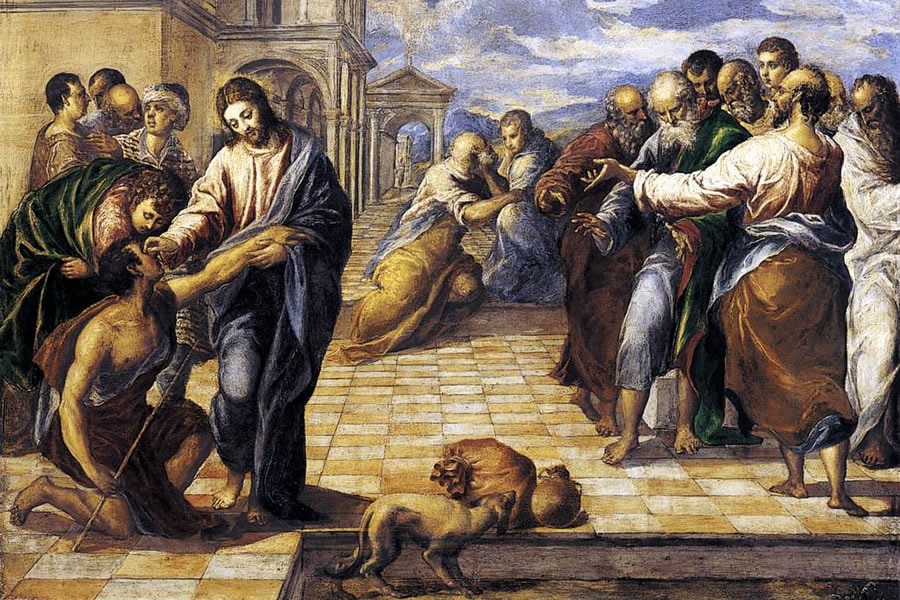
Gospel Meditation
03-26-2017Weekly Reflection"Neither he nor his parents sinned; it is so that the works of God might be made visible through him." The prevailing theology of Jesus' time led people to believe that any kind of disability was a punishment from God. So Jesus' disciples assumed that the man born blind suffered that affliction because of someone's sin: either his parents' or his own. But Jesus sets the record straight. Not only did he reject the idea that the blindness was a punishment for sin; he also went so far as to suggest that this very trial was an opportunity for God's glory to be revealed.
And sure enough, it was. Jesus worked a miracle of healing for the man who followed his directions and "came back able to see." So it was that the "works of God" became "visible" through a man who was blind! But, ironically, not everyone had the eyes to see the miracle. The Gospel tells us that "there was a division among them" as they debated whether this remarkable healing was really an act of God.
Jesus stated that he came "so that those who do not see might see." And so, who are we? Are we blinded by our own expectations of how God is supposed to work? Are we so caught up in our own vision of what we wish would happen that we fail to appreciate what is actually unfolding before our very eyes? It is so easy to perceive trials, disabilities, sickness, and misfortune as a curse or the result of being abandoned by God. But today's Gospel suggests another reality. In the midst of these very difficulties, God wants to reveal himself, to show his love and mercy. It may not always be in the exact way we expect, but without a doubt, even in these challenging realms, God is always at work.
BACK TO LIST